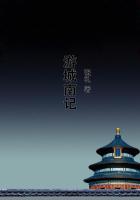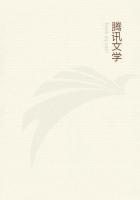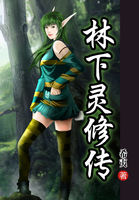With Cleggett, swordsmanship was both a science and an art.And something more.It was also a passion.A good swordsman can be made; a superior swordsman may be born; the real masters are both born and made.It was so with Cleggett.His interest in fencing had been keen from his early boyhood.In his teens he had acquired unusual practical skill without great theoretical knowledge.Then he had recognized the art for what it is, the most beautiful game on earth, and had made a profound and thorough study of it; it appealed to his imagination.
He became, in a way, the poet of the foil.
Cleggett seldom fenced publicly, and then only under an assumed name; he abhorred publicity.But there was not a teacher in New York City who did not know him for a master.They brought him their half worked out visions of new combinations, new thrusts; he perfected them, and simplified, or elaborated, and gave back the finished product.
They were the workmen, the craftsmen, the men of talent; he was the originator, the genius.
And he was especially lucky in not having been tied down, in his younger years, to one national tradition of the art.The limitations of the French, the Spanish, the Italian, or the Austrian schools had not enslaved him in youth and hampered the free development of his individuality.He had studied them all; he chose from them all their superiorities; their excellences he blended into a system of his own.
It might be called the Cleggett System.
The Frenchman is an intellectual swordsman; the basis of his art is a thorough knowledge of its mathematics.Upon this foundation he superimposes a structure of audacity.But he often falls into one error oranother, for all his mental brilliancy.He may become rigidly formal in his practice, or, in a revolt from his own formalism, be seduced into a display of showy, sensational tricks that are all very well in the studio but dangerous to their practitioner on the actual dueling ground.
The Italian, looser, freer, less formal, more individual in his style, springing from a line of forbears who have preferred the thrust to the cut, the point to the edge, for centuries, is a more instinctive and less intellectual swordsman than the Frenchman.It is in his blood; he uses his rapier with a wild and angry grace that is feline.
The Frenchman, even when he is thoroughly serious in his desire to slay, loves a duel for its own sake; he is never free from the thought of the picture he is making; the art, the science, the practical cleverness, appeal to him independently of the bloodshed.
The Italian thinks of but one thing; to kill.He will take a severe wound to give a fatal one.The French are the best fencers in the world; the Italians the deadliest duelists.
Cleggett, as has been said, knew all the schools without being the slave of any of them.
He brought his sword en tierce; Loge's blade met his with strength and delicacy.The strength Cleggett was prepared for.The delicacy surprised him.But he was too much the master, too confident of his own powers, to trifle.He delivered one of his favorite thrusts; it was a stroke of his own invention; three times out of five, in years past, it had carried home the button of his foil to his opponent's jacket.It was executed with the directness and rapidity of a flash of lightning.
But Loge parried it with a neatness which made Cleggett open his eyes, replying with a counter so shrewd and close, and of such a darting ferocity, that Cleggett, although he met it faultlessly, nevertheless gave back a step.
"Ah," cried Loge, showing his yellow teeth in a grin, "so the little man knows that thrust!""I invented it," said Cleggett.
With the word he pressed forward and, making a swift and dazzlingfeint, followed it with two brilliant thrusts, either of which would have meant the death of a tyro.The first one Loge parried; the second touched him; but it gave him nothing more than a scratch.Nevertheless, the smile faded from Loge's face; he gave ground in his turn before this rapid vigor of attack; he measured Cleggett with a new glance.
"You are touched, I think," said Cleggett, meditating a fresh combination, "and I am glad to see you drop that ugly pretense at a grin.You have no idea how the sight of those yellow teeth of yours, which you were evidently never taught to brush when you were a little boy, offends a person of any refinement."Loge's answer was a sudden attempt to twist his blade around Cleggett's; followed by a direct thrust, as quick as light, which grazed Cleggett's shoulder; a little smudge of blood appeared on his undershirt.
"Take care, take care, Cleggett!" warned Wilton Barnstable, from his post by the starboard bulwark.


